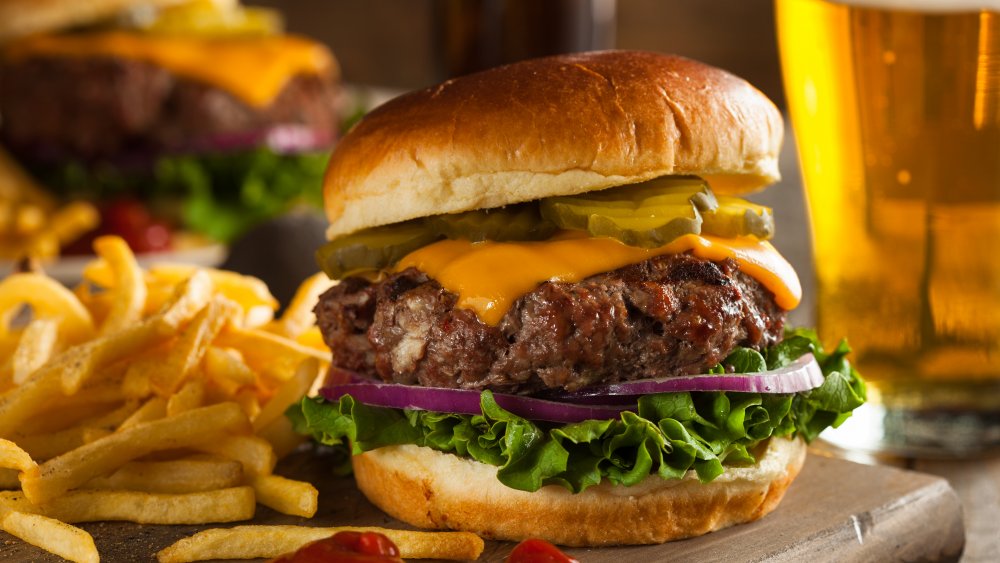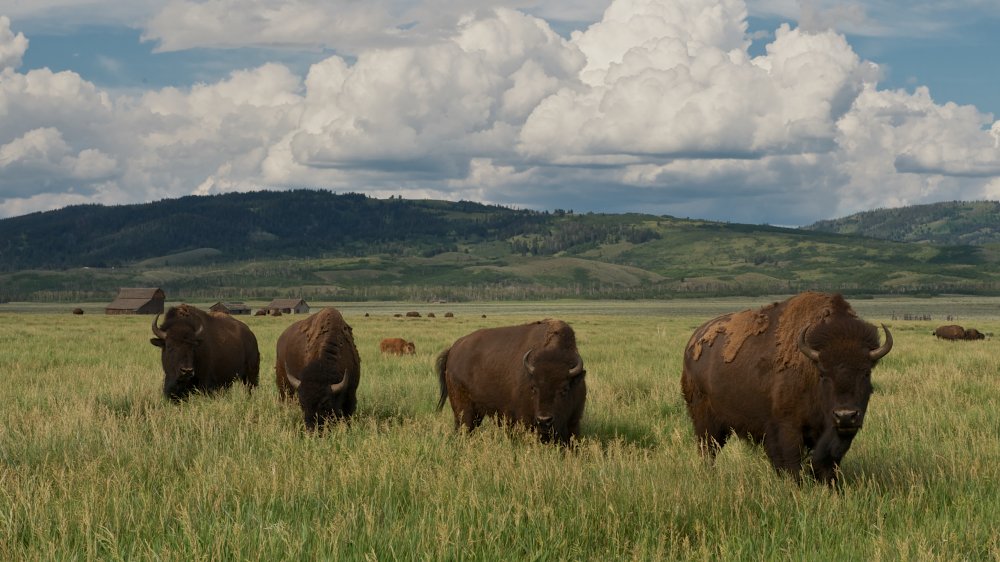What You Need To Know About Bison Meat
Bison meat is heralded as a lean red meat alternative to beef. These days, thanks in part to high-end chefs and paleo dieters, bison burgers and steaks are appearing on restaurant menus and on kitchen tables (via The New York Times). First of all, bison are not buffalo. Smithsonian's National Zoo & Conservation Biology Institute says the animals are similar yet distinct: bison graze on North American grasslands and buffalo call Asia and Africa their "home on the range." This is important, as the American mythology of bison roaming wild and free on the Great Plains informed how bison are raised and marketed today. "Bison is this iconic beautiful symbol of Americana that represents strength and power," Katie Forrest, co-founder of Epic grass-fed meat and fruit bars, told The New York Times. Accordingly, Forrest's company doesn't want to source bison meat that has been raised on grain.
While both bison and cows naturally consume grass, it is common practice to raise cows for beef in grain-based feedlots unless labels indicate otherwise (via Academy). Bison, on the other hand, are only semi-domesticated (via PennState Extension). Dave Carter, the Executive Director of the National Bison Association, told Academy, "All bison spend the majority of their life grazing on pasture ... Some are finished with grain, sometimes in a feedlot." Even if bison are confined, they're allotted more space due to their willful nature and health requirements. It's also illegal to use growth hormones or antibiotics when raising bison.
How does bison meat taste?
While bison garners bonus points for both nostalgia and animal welfare practices, it's important to consider how it stacks up in terms of both human health and flavor before jumping on the covered bandwagon. According to Cooking Light, pound for pound, bison delivers fewer calories, less fat, and more protein than beef. It also supplies necessary nutrients, vitamins, and healthy antioxidants, including iron, zinc, B-12, omega-3 fatty acids, and selenium. Bison may be a heart-healthier option too. Nutrition Research found that bison meat did not elevate harmful cholesterol levels like red meat did within the study.
Bison meat's lean profile translates to differences in the kitchen. Healthline warns that bison can be easily overcooked, especially steaks and whole-muscle cuts. Bison meat cooks faster than beef – it shouldn't be heated past medium or else it becomes tough. You can brush it with olive oil to help conserve its natural juices (via Academy).
Cooking Light describes bison's taste as sweet and not at all gamey. Its versatile flavor makes bison meat an easy substitute for beef in recipes for burgers, stir-fries, soups, and stews. Bison chili is recommended as a great first recipe to try. However, Carter says you should keep it simple. He told Academy, "The biggest mistake is that people dump on so many seasonings they lose the great bison taste. If you're going to pay a premium for bison meat, you should taste it."

